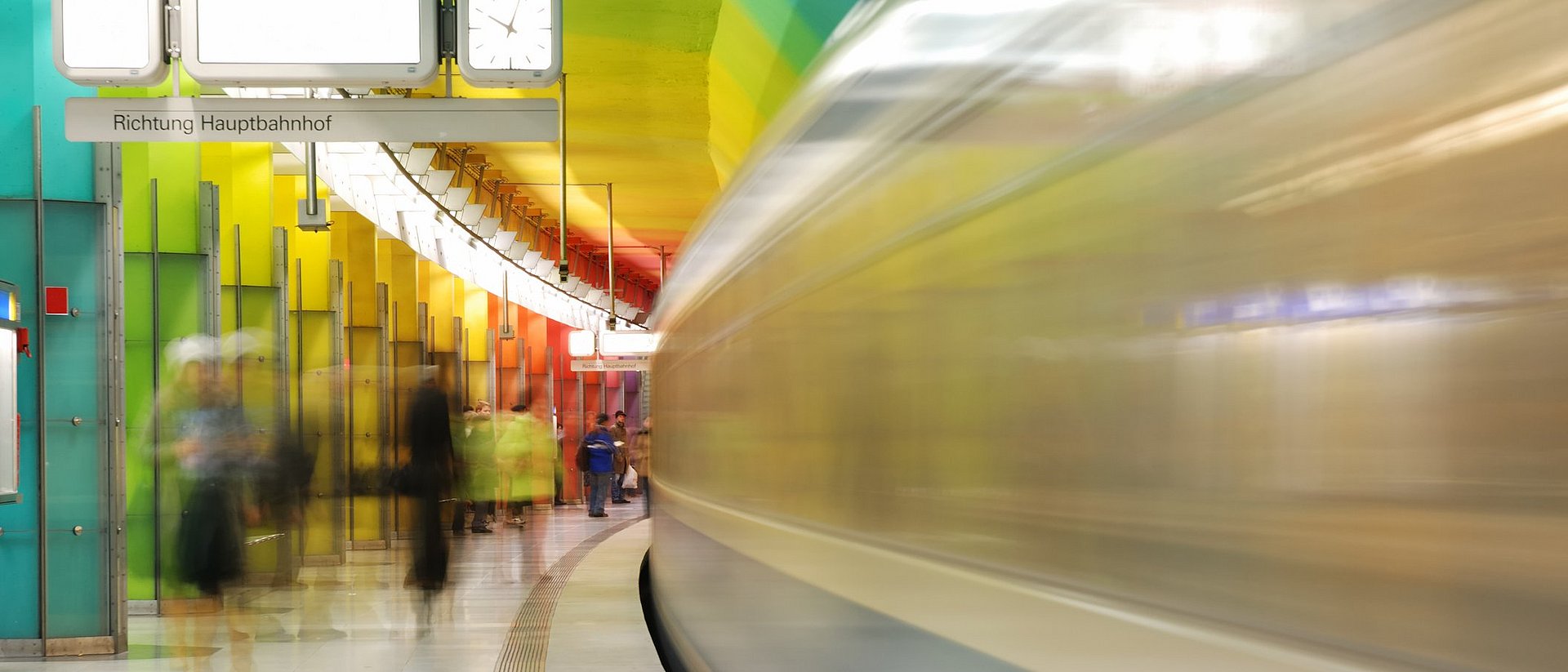Digital data on mobility patterns in the Munich region
More people opt for bus and rail travel

How did the so-called nine-euro ticket affect mobility behavior in the Munich metropolitan region over the first half of the offer period? Between mid-May and mid-September 2022, around 1000 adults of all ages use a smartphone app developed for the “Mobilität.Leben” study. The app logs routes and modes of transport to provide the research team with data on exact trip distances and times, for example.
The initial analysis of the data collected until mid-July shows: 35 percent of participants used public transportation more often after the introduction of the nine-euro ticket at the beginning of June. 3 percent made less frequent use of their own vehicles.
22 percent did not previously travel by train or bus and were now using these modes of transport, around a quarter of them more then three days a week.
Car traffic lower in June than May for the first time
“A radical change in everyday behavior due to a new offer was not to be expected. This makes the percentage of people trying alternative modes of transport to their own car all the more important,” says study leader Klaus Bogenberger of the Chair of Traffic Engineering and Control at TUM. Those who exclusively or primarily used their own cars in the past made more journeys by public transportation in the first half of June than in July. “People tried out bus and rail travel when the nine-euro ticket was launched,” says Bogenberger. “When the new experience becomes routine, there is less curiosity. But the key result remains: many people made public transportation part of their everyday lives.”
The study also shows: those who already used public transportation on a regular basis continued using their own cars, above all on weekends and especially for longer distances.
The results of the project are also reflected in the traffic data regularly collected by the city of Munich: For the first time, there was less car traffic in June than in May. Adjusting the figures for holidays, there was a 3 percent decrease as compared to the 3 percent increase normally seen. “That might look like a small difference at first glance – but that we see this change in the annual timeframe is extraordinary,” says research team leader Dr. Allister Loder.
Income irrelevant to acceptance of nine-euro ticket
In addition to the app-based collection of data, the research team survey the study participants in May, July and October on their attitudes to the nine-euro ticket, their willingness to pay for public transportation, climate change and other prevailing conditions, as well as demographic data.
The analysis of the first survey shows that car owners and rural residents were slightly less willing to buy the nine-euro ticket. The results were unaffected by income.
After this interim assessment of the study to date, the research team will not only collect data on mobility behavior during the second half of the nine-euro ticket period, but will also analyze traffic in the weeks that follow. The recently founded TUM Think Tank will discuss the results with the public and prepare recommendations for policy makers, the private sector and civil society actors.
- Interim project report (German)
- The study conducted by TUM and the Hochschule für Politik München (HfP) is being coordinated by the TUM Think Tank in close cooperation with MCube – the Munich Cluster for the Future of Mobility in Metropolitan Regions.
- The interdisciplinary research group includes participants from the professorships of traffic engineering and control, data analytics and machine learning, economics, renewable and sustainable energy systems, automotive technology, innovation research, policy analysis, and environmental and climate policy.
- The project is receiving support through a commission with representatives of the Bavarian Ministry for Housing, Construction and Transport, the City of Munich, and the Munich municipal and regional public transport companies (MVV and MVG), among other bodies.
Technical University of Munich
Corporate Communications Center
- Klaus Becker
- klaus.becker@tum.de
- presse@tum.de
- Teamwebsite
Contacts to this article:
Prof. Dr. Klaus Bogenberger
Technical University of Munich (TUM)
Chair of Traffic Engineering and Control
Tel: +49 89 289 22437
klaus.bogenberger@tum.de